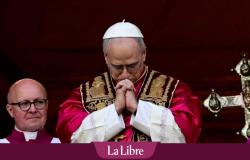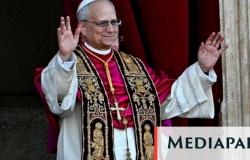In a global context marked by economic, health and geopolitical uncertainties, the revitalization of bilateral relations between France and Senegal stands out as an essential lever to concretize the economic repository “Vision Senegal 2050”. Carried by the tandem pr. Diomaye Faye and PM Ousmane Sonko, this ambitious project aims to transform Senegal into a sovereign, industrialized and resilient economy. While an intergovernmental seminar is scheduled for June 2025 in Dakar, this article analyzes the relevance of a renewed partnership, based on win-win reports and enlightened sovereignty.
- Senegal 2050 vision: a framework requiring strategic allies*
- The project, “Vision Senegal 2050” is distinguished by its daring objectives:
- Annual growth of 6.5%* by 2029, with a tripled GDP/inhabitant (from 1,600 to 4,500 USD).
- Poverty reduction to 10% of the population (against 37.5% in 2023) and economic diversification via eight regional centers.
- Energy sovereignty thanks to the exploitation of hydrocarbons (100,000 barrels/day) and renewable energies.
However, these ambitions come up against structural challenges:
- Public debt* at 99.67% of GDP (revealed by audits in 2024) and budget deficit at 11.6%.
- Dependence on imports* and low local transformation of raw materials
France, the first historic partner and investor, has levers to support this transition, in particular via:
- Concessional funding* (e.g. 2.35 billion euros engaged via AFD for infrastructure, health and agriculture projects).
- -A technology transfer* in key sectors (energy, food, digital).
France in Senegal: a key economic partner
French investments cover neuralgic sectors aligned with the priorities of Senegal 2050 vision:
Regional Express Train (TER): France has co -financed the 2nd phase (984 billion FCFA), symbol of bilateral cooperation.
BTP crisis: the sector, which employs 500,000 Senegalese, suffers from a decline of 9.3% of cement production in 2024 and the problem of certified iron vs local iron (exemption title, market bias in terms of price). French investments could revive paralyzed sites, ultimately perpetuate the Eiffage, CSE and CDC consortium among other dynamics on public procurement…
- Energy and extractive industries
Hydrocarbons: The renegotiation of oil contracts underlined by Sonko (eg Sangomar field) offers an opportunity for balanced joints.
Renewable energies: AFD finances solar projects (eg: 100 million euros for food sovereignty).
- Training and human capital
Franco-Senegalese campus (CFS): 1,209 students trained in 25 sectors (digital, engineering), with recognized double diplomas in Europe and Africa.
-Correct imbalances: towards enlightened sovereignty
To avoid pitfalls of the past (dependence, asymmetry of contracts), Senegal is focused on:
- Transparent governance: audits of petroleum contracts and tax reform to widen the tax base.
- Innovative funding: mobilization of the diaspora (€ 3 billion/year) and recourse to regional markets.
- Commercial balance: development of local sectors (steel, food) to reduce the trade deficit (4,000 billion FCFA in 2023).
The June 2025 seminar: an opportunity window
This meeting must act:
- A targeted investment plan: prioritize the steel and agrifood industries, as Sun Tzu recommends: “never divide your strengths”.
- Security and migration cooperation: fighting illegal emigration via local jobs.
- A dialogue on debt: re-engagement or conversion to investments (“debt-for-format” model).
In conclusion, the revival of the Paris-Dakar axis is not a choice, but a strategic necessity. In a spirit of mutual respect, it will allow Senegal to reconcile sovereignty and openness, while offering France a key role in the emergence of a West African economic hub. As Ahmadou Aly Mbaye underlines (Faseg/Ucad), “the promised structural transformation requires balanced partnerships”. The June 2025 seminar will be the decisive test of this common will.
Sources : French Treasury Reports and Senegal 2050 vision documents
NB, this article is based on data verified on April 27, 2025.
Dr. Seydina Oumar Seye.








